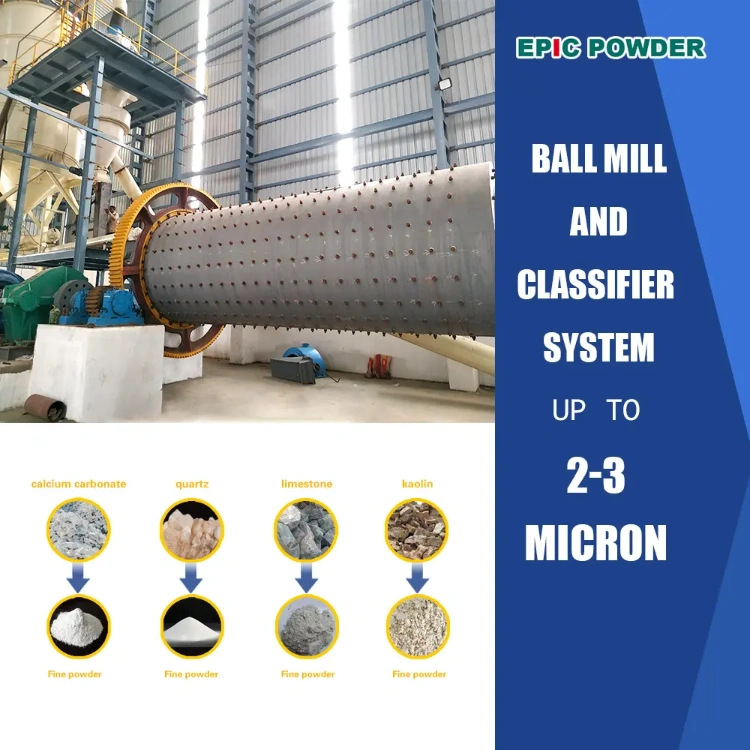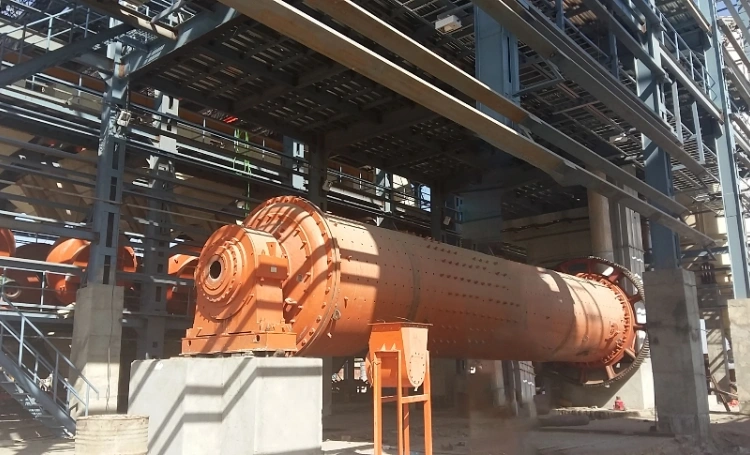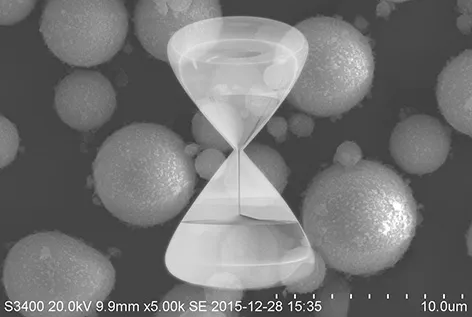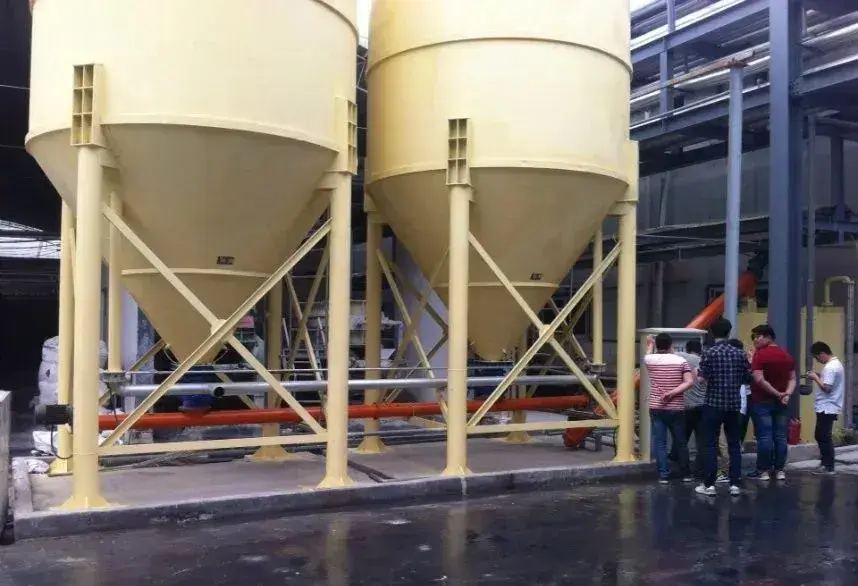Heavy calcium carbonate is produced from natural minerals like calcite, marble, limestone, and chalk, meeting fineness requirements for various applications. These minerals are processed into fine powder products used in industries like plastics, rubber, coatings, and paper. The dry method is commonly used to produce heavy calcium carbonate with a D97 ≥3-5μm particle size. The process is efficient and reduces costs by avoiding large amounts of water or solvents. Main equipment for heavy calcium carbonate includes Raymond mills, impact crushers, air classifiers, vertical mills, ring-roll mills, vibration mills, and ball mills.

Different equipment types are chosen based on the required particle size and production capacity. Raymond mills are used for coarser grinding, while impact crushers and dry stirred mills are used for finer products. Air classifiers ensure precise particle size control, while other mills handle ultra-fine grinding. These advanced equipment for heavy calcium carbonate improve product consistency and quality in heavy calcium carbonate production.
Heavy calcium carbonate dry process production equipment and product characteristics
| Processing equipment | Product fineness | Application areas |
| Large Raymond mill Vertical mill | 45um | Low-end paper filling materials, shoe sole filling materials, home decoration boards, dry mortar, feed, power desulfurization, wet deep processing raw materials, etc. |
| Raymond mill Roller mill Vertical mill Ball mill + air classifier | 15-45um | Paper filling and coating materials, plastics and their profiles, rubber, non-woven fabrics, artificial marble slabs, wet grinding and deep processing raw materials, etc. |
| Roller mill Vertical mill Ball mill | 10-15um | Paper (surface) coating materials, non-woven fabrics, paints and coatings (water-based), mid-to-high-end plastic masterbatches, mid-to-high-end rubber masterbatches, etc. |
| Roller mill Vertical mill 2nd classification Ball mill + air classifier | <10μm | Paper coating, high-end plastic masterbatch, paint and coating and other industries with higher functional requirements |
Raymond mill
Raymond mills are widely used to produce heavy calcium carbonate products with a particle size of 38-74μm (200-400 mesh). After modification and configuration with a fine classifier, they can also produce fine powders with a D97 of 30-15μm (500-800 mesh).
Raymond mills offer advantages such as small footprint, high product sieve rate, strong system efficiency, and reliable operation. However, they also have limitations, such as a low volume of 2μm fine powder and a small specific surface area.
ball mill

The ball mill with classifier process is an advanced powder technology recommended by leading global powder technology companies and widely adopted by renowned European and American powder companies. This process can be used to produce heavy calcium carbonate products with particle sizes of D97 = 5μm, 10μm, 16μm, 45μm, and other grades.
However, the heavy calcium carbonate powder produced by the ball mill and classifier process faces issues such as an excessive volume of 2μm fine powder, high specific surface area, particle agglomeration, poor dispersion performance, and high energy consumption per ton of product.
Vertical mill
Vertical mills use the relative motion between the grinding rollers and grinding table to crush materials in a bed of material. The combination of vertical mills with secondary and tertiary classification dry processes is one of the main advancements in fine processing technology for heavy calcium carbonate powders in recent years.
With vertical mills, it is possible to directly process standard heavy calcium carbonate products with a particle size of 325-800 mesh. By adding classification, some of the 325-800 mesh products can undergo secondary or tertiary classification to produce mid-to-high-grade fine powders with particle sizes of 1000-2500 mesh. Additionally, lower-grade products can be finely ground using wet mills or air classifiers, producing ultra-fine powders with particle sizes of 2500-6500 mesh to meet high-end requirements.
Epic powder
Epic Powder, 20+ years of work experience in the ultrafine powder industry. Actively promote the future development of ultra-fine powder, focusing on crushing,grinding,classifying and modification process of ultra-fine powder. Contact us for a free consultation and customized solutions! Our expert team is dedicated to providing high-quality products and services to maximize the value of your powder processing. Epic Powder—Your Trusted Powder Processing Expert !

